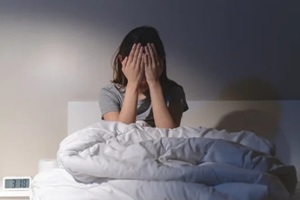
In today’s hectic world, it is common for people to worry about their lives, their jobs, their health, and more. They may feel overwhelmed or feel like no matter what they do, it is not enough to address the problems they are facing. They may work hard but notice few fruits of their labor, leading to physical and psychological symptoms. Such symptoms can indicate both stress and anxiety, but these two concepts are not the same. The good news is that individual therapy can be effective at addressing both!
However, before potential patients can seek treatment, it is essential to understand what stress and anxiety are. While a therapist can help an individual parse whether they are stressed, suffering from an anxiety disorder, or something else, having this knowledge equips patients with the information they need to choose a relevant therapist.
Are Stress and Anxiety the Same Thing?
Stress and anxiety are not the same thing; each describes different phenomena and can even occur simultaneously. Their symptoms are similar and share some overlap, as do the potential approaches for treatment.
Stress
Stress describes an emotional response to a situation or stimulus that causes upset, discomfort, fear, or feeling overwhelmed. Most people feel stress somewhat often: when running late to an appointment, facing a work deadline, getting in a fight with a friend or partner, and more. Difficult situations can often lead to stress.
When a person feels stressed, they may experience both physical symptoms and changes in mood, such as:
- Chest tightness
- Racing heartbeat
- Fatigue
- Insomnia
- Irritability
- Headaches
- A sense of being overwhelmed
Anxiety

Anxiety is also an emotional response to a stimulus, but with a primary difference that separates it from stress: it does not rely on external factors. That is, a patient may suffer from anxiety about things that have not occurred or thoughts (even if irrational) that arise during the course of daily life. These persistent worries tend to reappear regardless of whether the individual is exposed to a stressor.
The patient may experience recurring thoughts that frighten or upset them, which may cause stress, further exacerbating the issue. An individual can have anxious thoughts regularly or face temporary anxiety. They can also have an anxiety disorder, and a mental health professional can help patients understand the difference and what to do about it.
How to Treat Stress
Stress is temporary, even if life regularly throws curve balls. An external trigger, such as an event or encounter, typically brings it on. This means that stress arises outside the patient, and a therapist can help that individual develop coping mechanisms that either remove the stressor or mitigate its effects. For example, suppose a patient was in a car accident, and their vehicle was destroyed.
They still need to go to work but do not have any form of transport. Now, they must coordinate new transportation such as carpooling, adjust their schedules, and find ways to run other errands instead of looking for (and affording) a new vehicle. This situation could be extremely stressful! A therapist might help patients approach this type of stress by:
- Teaching them how to break the situation into individual, manageable tasks
- Helping patients understand how their thought processes impact their mood (and how to adjust those thought patterns)
- Creating a plan for exercise, eating well, and sleeping to support the body through a stressful time
Treatment Options for Anxiety
While anxiety shares many of the symptoms of stress and can benefit from many of the same types of treatments, the therapist must often approach the topic from a different angle. Because anxiety is intrinsic (that is, external factors do not cause it), patients cannot simply remove the stressor to feel better. Instead, therapists may:

- Use cognitive behavioral therapy to teach new, more productive thought patterns
- Help patients reframe their perspective of danger to reduce the body’s fight-or-flight response to thoughts
- Create a plan made of coping mechanisms, behaviors, and calming activities that are personalized to the patient’s needs and personality
Don’t Let Stress or Anxiety Derail Your Life: Get Started with Individual Therapy
Both stress and anxiety can have a significant impact on a person’s daily life, hindering them from achieving their goals and living the way they want to. Individual therapy is a powerful tool to combat the effects of anxiety and stress, whether as temporary support to get you back on your feet or as a long-term solution to maintain good mental health habits. Contact Village Counseling today to schedule your therapy appointment with caring professionals and learn more about how you can mitigate the impact of stress and anxiety!
